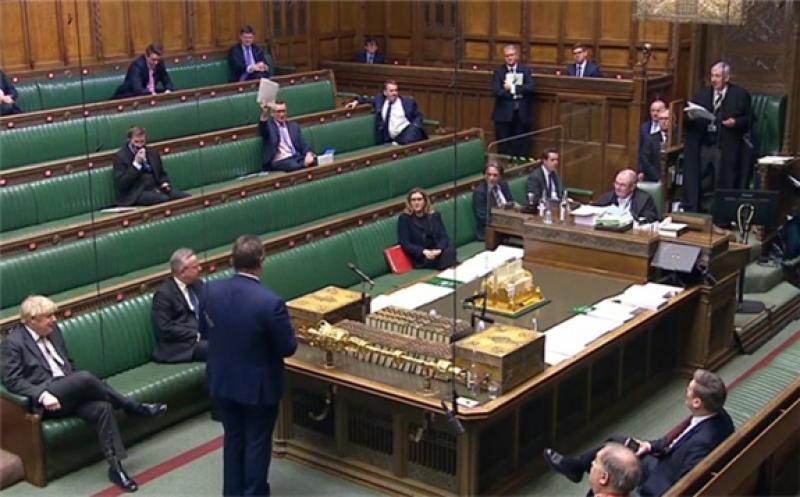Members of Parliament today approved legislation that will pass the UK-EU post-Brexit deal into UK law, in a vote split 521 in favour and 73 against. The EU (Future Relationship) Bill now passes to the House of Lords for its approval. Once that upper chamber of parliament also agrees to the bill, the Queen will be asked to give her consent, known as Royal Assent.

The UK-EU Trade and Cooperation Agreement was announced on 24 December, along with a separate Nuclear Cooperation Agreement between the UK and the European Atomic Energy Community (Euratom).
Commending the bill to the House of Commons, Johnson said: "Brexit is not an end but a beginning … and we are going to start a new chapter in our national story, establishing free trade deals with countries from around the world."
Referring to his leading role in the pro-Brexit campaign ahead of the national referendum held in June 2016, he said: "When we campaigned for exit from the EU, we didn't want rupture but resolution … working hand-in-glove whenever our interests coincide."
He told MPs: "This bill embodies our vision - shared with our European neighbours - of a new relationship between Britain and the EU as sovereign equals, joined by friendship, commerce, history, interests and values, while respecting one another’s freedom of action and recognising that we have nothing to fear if we sometimes choose to do things differently."
The Brexit deal means "we will be able to design our own standards and regulations", that laws passed in Parliament will be interpreted "solely by British courts", that "we will have the opportunity to deliver new ways to encourage flourishing sectors in this country" and "we will be free of EU state aid rules".
He said the deal "banishes the old concepts of uniformity and harmonisation in favour of the right to make our own regulatory choices".
The UK will be not simply a "science superpower", but a collaborative science superpower, he said.
Keir Starmer, leader of the Opposition (Labour Party) said he would vote in favour of the deal. "A thin deal is better than no deal," he said. "It matters that the UK has not gone down the blind alley of no deal."
Tom Tugendhat, chairman of the Foreign Affairs Committee and a Conservative Party MP, said: "We have a chance to renew international cooperation and commit ourselves to the environmental revolution that is so essential as we chair the G7 and COP26 … We can make Glasgow the next milestone after Paris in the path to a greener world."
He added: "Britain will succeed if we remember our friends in Europe, the Commonwealth and the world, if we renew our alliances and build new partnerships, and if we develop new greener markets and industries, innovate and invest in ourselves. This is a new beginning and we alone are responsible for seizing it."